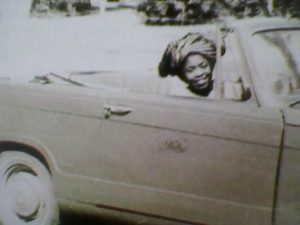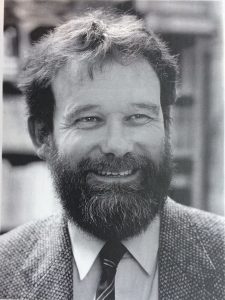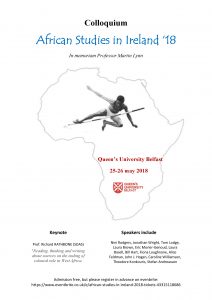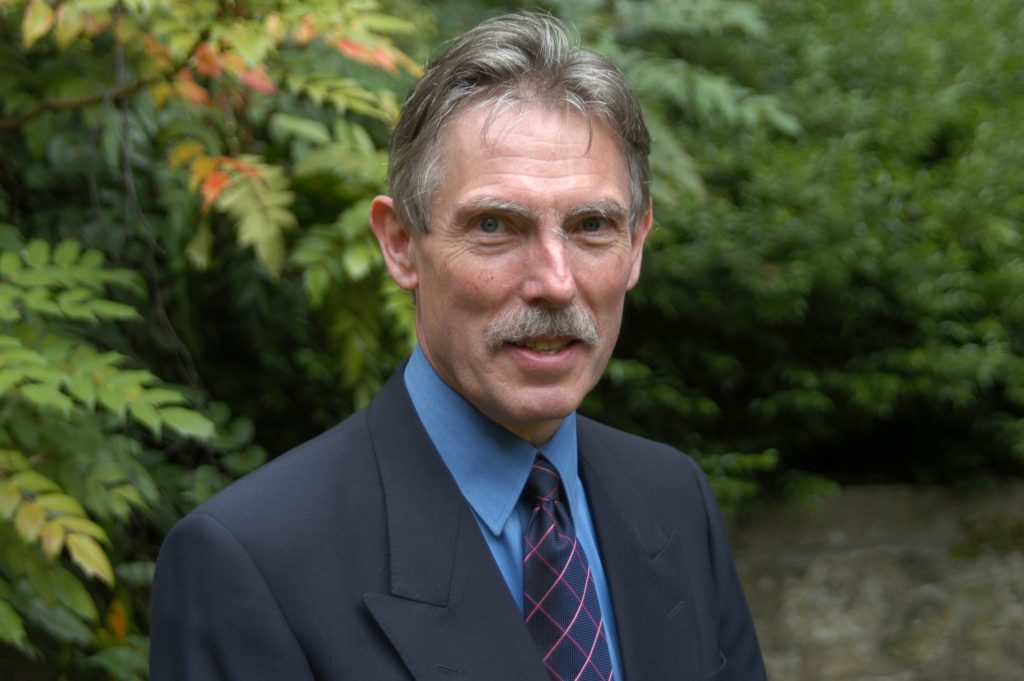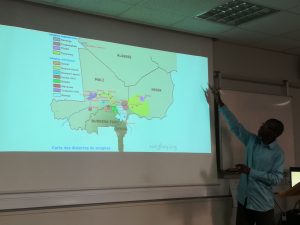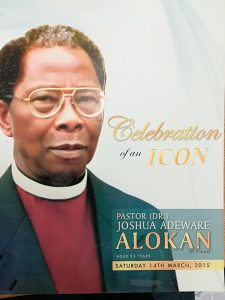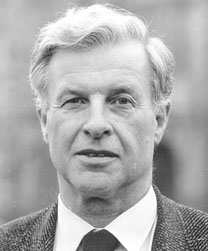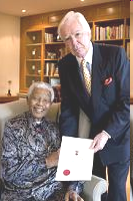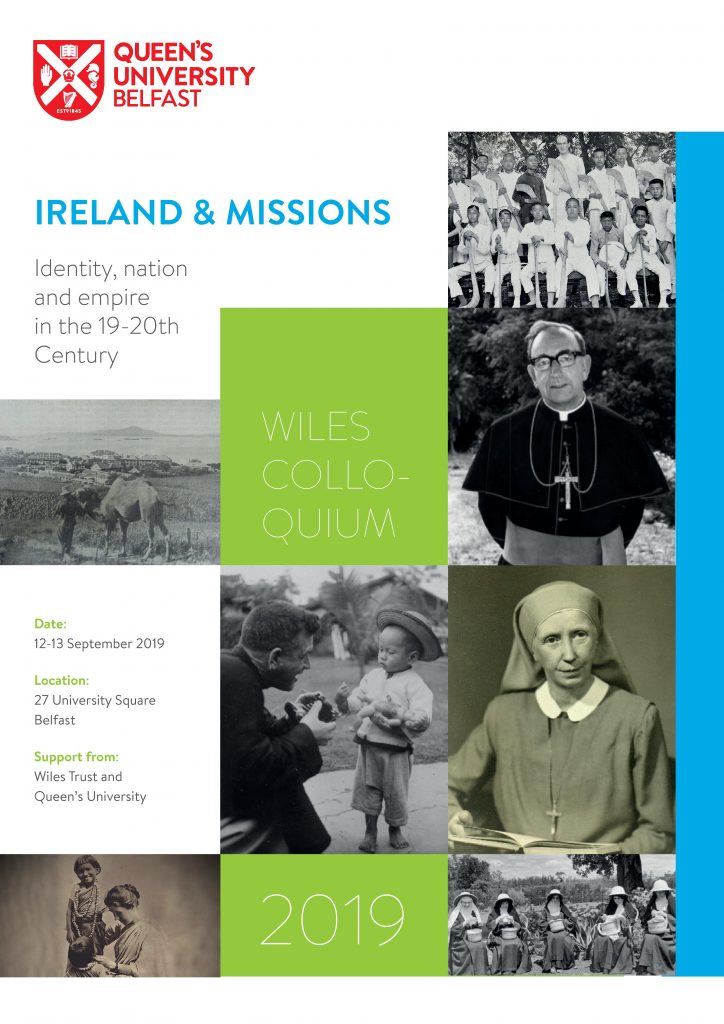
THURSDAY 12 September 2019
1,00pm. Welcome & Introduction
1,30pm Opening lecture I .
——————————————-
Andrew Holmes, “‘Where have the Protestants gone?’ The Irish Protestant missionary experience, 1790-1914.”
2.00pm – Panel One “Green and Orange”
———————————————————–
Matteo Binasco, “Whenever Green is Worn: The Holy See and Irish Catholic Missionary Movement in the Nineteenth Century.”
Declan O’Doherty & Aglaia de Angeli, “From novice in Newchwang to Minister in Manchuria. A discussion of the early experiences of the Presbyterian missionary Rev. Alexander Crawford in Manchuria, 1895-1913.”
Alannah Jeune, “Complexities of identity: Juvenile Mission literature in the Presbyterian Church of Ireland”
4.00pm – Opening lecture II .
——————————————-
Colin Barr,“The Children of the Household’: Irish Catholic Missionaries and Indigenous Populations in the Settler Empire, 1815-1914.”
4,30pm Reception
FRIDAY 13 September 2019
9,30am – Panel Two “Great Works…”
—————————————————–
Jamelyn B. Palattao, “James A. Greig of the Presbyterian Church of Ireland (PCI): Mission, Humanitarianism and Diplomacy in China.”
Eric Morier-Genoud, “Donal Lamont. A (northern) Irish Bishop in Africa?”
Barry Sheppard, “‘The great cannot exist without the small; nor the small without the great.’ Catholic Action in Ireland and Abroad 1932-49.”
11-12,30 – Panel Three “Home and Abroad”
———————————————————–
Sarah Roddy, “Temporary missionaries: or, how the ‘spiritual empire’ changed Catholic Ireland”
Stuart Mathieson, “Irish Missions, Science, and Scripture in the Holy Land”
Fiona Bateman, “Echoes of Irish history in Eastern Nigeria: Cultural loss and conflict”
12,30 Lunch
2, 00-3,30 – Penal Four “Exhibition, Text and Photographs”
——————————————————————————
Denis Linehan, “‘A Stuffed Gold Coast Monkey’: Exhibiting Irish-Africa in the Missionary Exhibitions in 20th Century Ireland.”
Justin Livingstone, “Writing Mission: Empire, Decolonisation and the Qua Iboe”
Fiona Loughnan, “The Album and the Archive: Migratory Photo-Objects and Irish Spiritan Missions in Kenya”
4,00pm Concluding remarks
Full Programme – download here
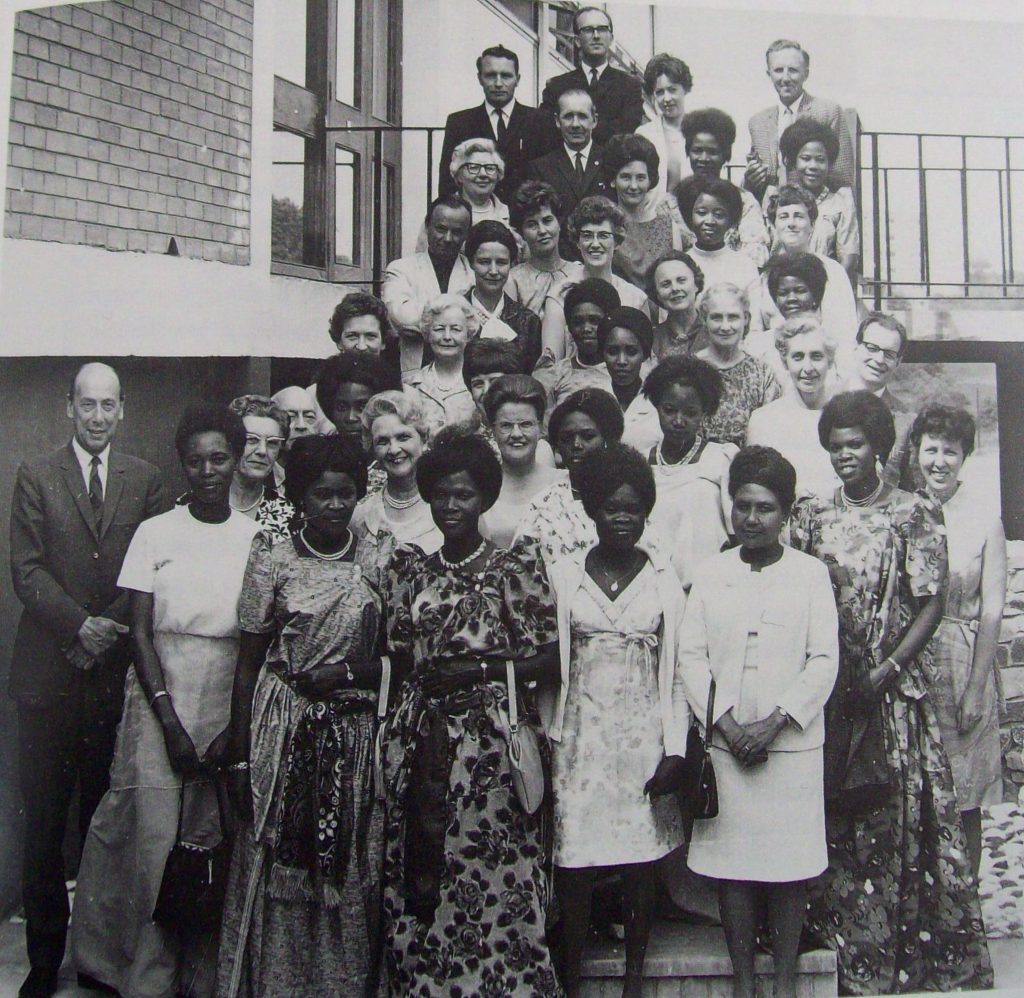
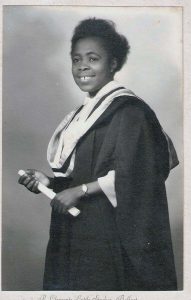 Born in Assang Eniong, Cross Rivers State, Nigeria, Mary Ekpiken arrived in Belfast in 1953. She came to study economics with a Nigerian government grant. She resided at Riddel Hall until she graduated in 1955.
Born in Assang Eniong, Cross Rivers State, Nigeria, Mary Ekpiken arrived in Belfast in 1953. She came to study economics with a Nigerian government grant. She resided at Riddel Hall until she graduated in 1955.